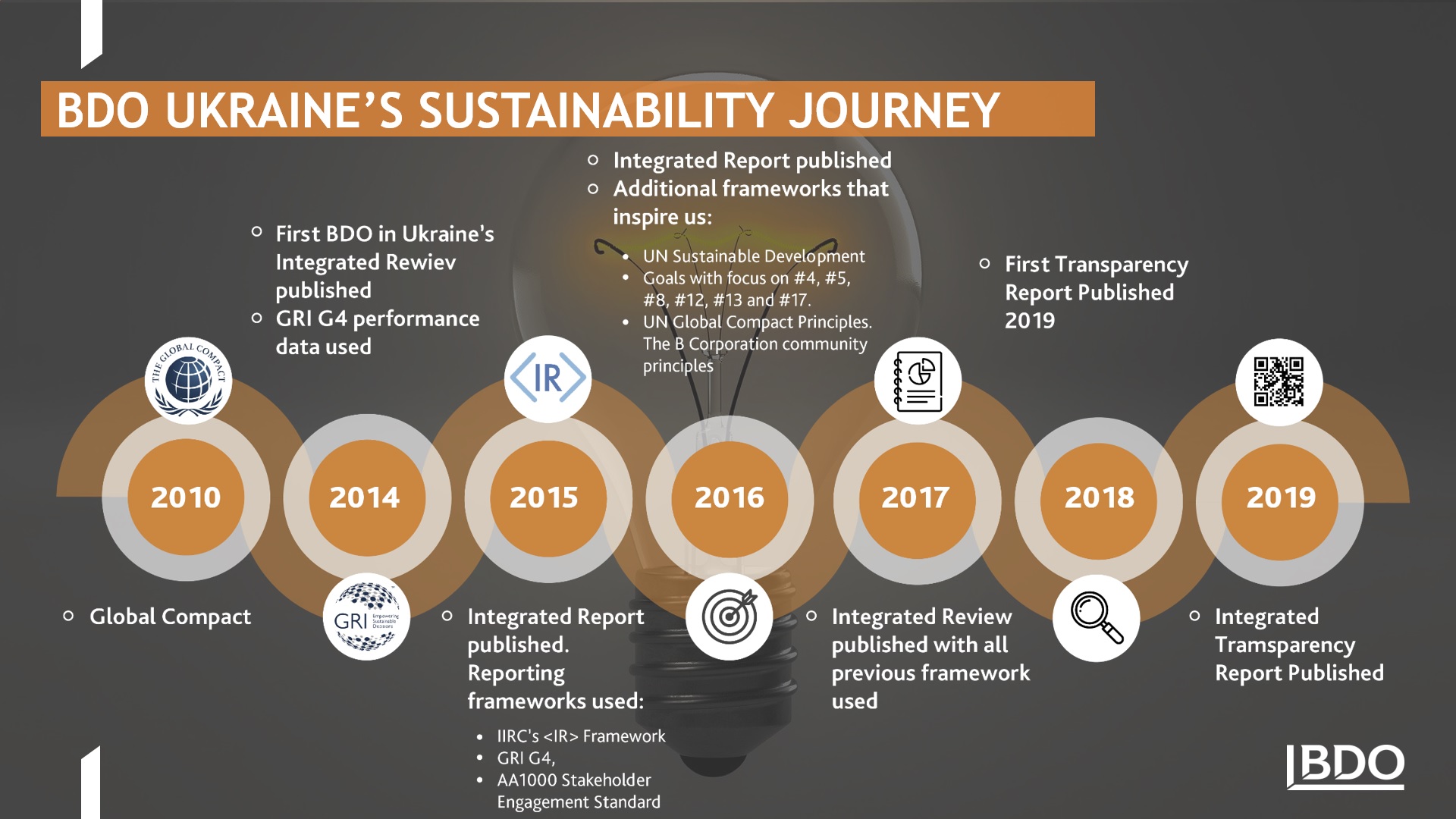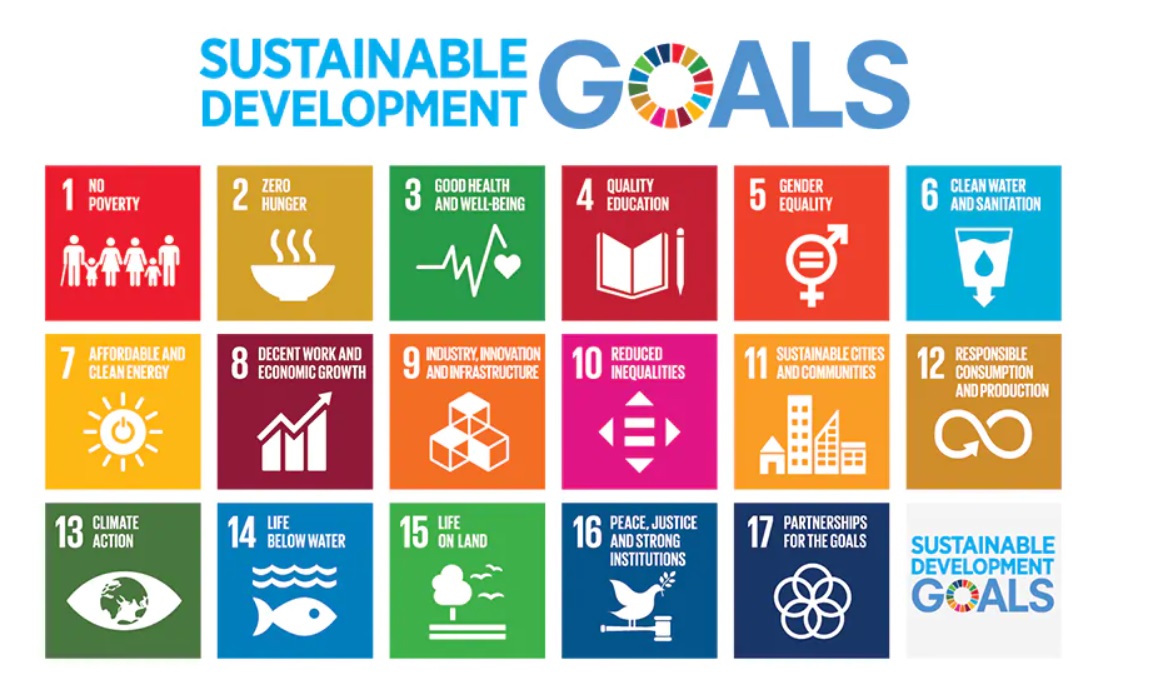Sustainable development as a means to develop business in the long run
Sustainable development as a means to develop business in the long run
Recently, sustainable development has been becoming more and more important for entities in many fields. The study revealed that 62% of managers consider a sustainable development strategy to be essential for competitiveness nowadays, and another 22% believe that it’s the near future.
Simply put, Sustainability is a business approach to creating long-term value, taking into account how the organization operates in ecological, social and economic environment. The assumption that the development of such strategies contributes to the longevity of the company is a basis for Sustainable development.
During the webinar, Vera Savchenko told about the path of BDO to sustainable development, which has been lasting for a decade. She noted that sustainable development, CSR and ESG are not just words, but part of everyday life for all employees of the company.

Why is sustainability important?
There is no doubt that the concept of sustainable development today is more important than ever, and that living within our environmental constraints to prevent climate change is a fundamental part of such development.
The environmentally sustainable economic growth is not a new idea. Many cultures throughout human history recognized the need for harmony between environment, society and economy. However, one problem that environmental managers face is that the goal of sustainable development is not entirely formulated, and its fundamental concepts are still being discussed.
One may say that the goal of sustainable development is to balance economic, environmental and social needs, ensuring prosperity for present and future generations.
Case studies have illustrated that yearly consumption of resources is 40% more than their recovery. We need sustainability at that point to balance between our need for technology and economic development and the need to preserve the environment. It is not only about the environment, but also about improvement of health,
society and all humanity.

Henning Drager noted that before delving into CSR and ESG, we need to ask ourselves some questions. Why do I need this? What do I want to achieve for myself and for the company? What will happen in a year, in 10 years, in 100 years?
12 Reasons to switch to sustainable development:
- To reduce costs
- To save resources/capital
- To conform to legislation
- To enhance reputation
- To differentiate
- To attract and retain qualified employees
- To meet customer needs
- To meet stakeholders’ expectations
- To attract investment
- To take advantage of new opportunities and minimize risks
- To improve transparency
- To innovate
It is time to accept that sustainability is not just a ruse. When incorporated into strategic planning, sustainability provides potential value to the competitive future of the organization as a whole.
The incorporation of CSR into the company's strategy not only shows that the business takes the issue seriously, but, more importantly, makes real efforts. This inspires employees and mobilizes the company to achieve common goals that benefit both the company and society as a whole.
What is the role of accounting, marketing and finance functions in sustainable development?
- The role of accounting in the sustainable development is, first of all, to gather information to assist internal decision-making bodies (management accounting), to prepare financial statements and information on sustainable development issues for external stakeholders, to ensure the reliability in published reports.
- The role of marketing is the impact on customer behavior, which brings profit and positive social changes. It's about what you advertise and how you advertise.
- is one of the most important functions of ensuring sustainability in business, as it reaches every “corner” in the organization and ties to the market economy.
Since environmental conditions, economic and social systems vary considerably from country to country, each country must develop its own policies to ensure sustainable development in order to achieve the global goal.
“Sustainability will no longer be a choice! This will be the only available path to development. It's only a matter of time,” says Henning Drager.
We recall that Henning has over 20 years of experience providing ESG solutions in 27 markets and 25 sectors, including renewable energy, mining, retail, financial services and healthcare.
For more information about sustainable development services and ESG, refer to here.